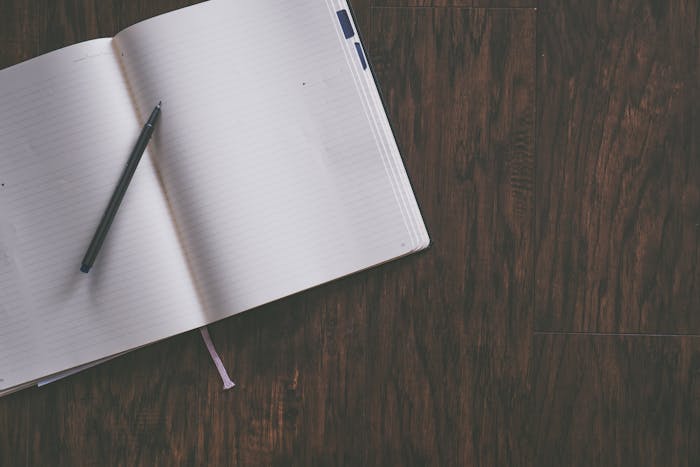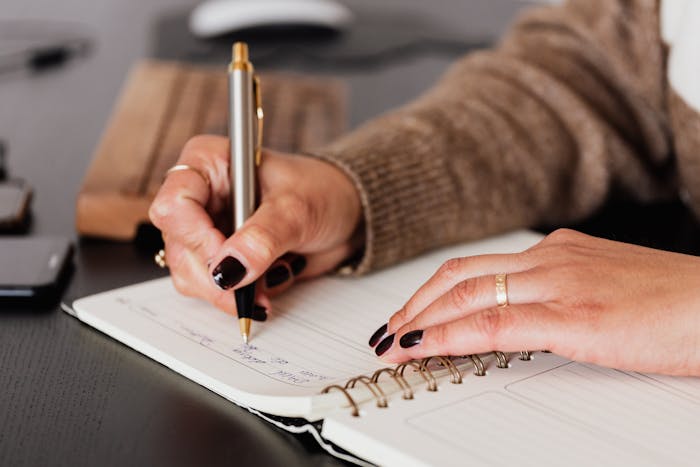Gratitude journalling can be a powerful tool in addiction recovery.
Recovery from addiction is about more than just stopping the use of substances like drugs and alcohol, it’s about rebuilding your life so that you have a healthy and meaningful future.
The journey to recovery can be challenging, since it often involves confronting difficult emotions, repairing damaged relationships and learning to go through every day without relying on harmful coping mechanisms.
This blog will explain what exactly gratitude journalling is, the science behind it and how to get started.

Gratitude journalling is when you regularly write things down that you are grateful for. This can be as simple as noting down three things you are thankful for in your day, or exploring moments of kindness or personal growth in your recovery journey. [1]
There is no “right” way to do it, but the key to building this positive habit is consistency. So, try to do a little each day.
There is more behind gratitude than just being a “feel-good” idea, it is backed by neuroscience data. [2]
When we express gratitude, the brain releases dopamine and serotonin, two important neurotransmitters that give us feelings of pleasure. Over a longer period of time, this positive reinforcement can help reshape neural pathways associated with negative thinking or addictive behaviours like drinking or using drugs. [3]
Research from a number of leading psychology institutions has found that practising gratitude regularly can increase activity in the medial prefrontal cortex, the part of the brain linked with learning, decision-making, and emotion regulation.
These are the same brain regions which are generally affected by substance misuse, meaning that if you regularly practice gratitude, this can play a meaningful role in healing the brain’s reward and motivation systems. [4]
Gratitude journalling is more than a mental exercise, and it can be a way of helping your brain recover balance and find a sense of reward from healthy sources.
Gratitude within addiction recovery can be an incredibly useful tool to help cope with any feelings of guilt and shame that you may experience.
It can be a great way to start to overcome the deep emotional scars that addiction often leaves.
Mental health benefits of practising gratitude journalling include:
The practice of gratitude journalling can not only improve your day-to-day wellbeing, but it can also be key for long-term abstinence as you put in place an emotional structure.

Beginning a gratitude journal doesn’t have to be difficult. To start a gratitude journal, all you need is a notebook, a pen, and up to five minutes per day.
Below is a quick way to start gratitude journalling today:
Try writing at the same time each day. This could be in the morning to set a positive tone, or at night to reflect on what has happened during the day.
Begin by listing three things you’re grateful for each day. They can be small, such as a smile from a friend, a good meal, or the feeling of hot water on you during a shower.
Being specific can be helpful when building your gratitude journal.
Instead of writing “I’m grateful for my family,” write: “I’m grateful my sister called today to check in, it reminded me that I’m loved and supported.”
Gratitude isn’t about pretending your recovery is perfect, it can also be acknowledging the struggles as well as your successes.
You might write, “I’m grateful I made it to my support group even though I didn’t want to, it shows I’m stronger than I think.”
Having prompt questions can make it easier to start, such as:
Spending up to five minutes before journalling to breathe deeply or reflect on the day, can help ground your thoughts and make the overall practice more meaningful.

Gratitude journalling works best when it is used as part of a wider approach to recovery.
On its own, it’s a valuable daily habit, but when combined with therapy, peer support, and healthy lifestyle changes, it can be a powerful complement to professional treatment and long-term recovery.
Many people in recovery find that gratitude enhances the emotional and spiritual aspects of their journey. For example, it can be useful to think of in different aspects of your recovery journey such as:
The aim of gratitude journalling isn’t perfection, it’s awareness. Gratitude helps people in recovery recognise not only what they have, but also who they are becoming: stronger, more grounded, and capable of change and long-term addiction recovery.

Like any new habit, gratitude journalling takes time and consistency to feel natural and become something you do without thinking.
At first, it might seem forced, but with patience, it becomes a grounding part of your daily routine.
Here are some ways to keep your gratitude journal going:
Leave your journal somewhere you’ll see it every day. This could be on your bedside table, next to your kettle, or by your coffee machine.
A visual reminder can make all the difference.
If you’re using your phone, try setting a daily reminder or alarm. A notification saying “What are you grateful for today?” can remind you to take a mindful pause for a few minutes.
Your entries don’t have to always be cheerful. On difficult days, gratitude might simply look like: “I got through the day.”
Honesty is far more powerful than perfection on your addiction recovery journey.
If writing feels stale, try switching things up, jot down notes in your phone, record voice memos, or even take photos of moments that make you smile.
Gratitude doesn’t always have to be written in a linear thought process in a journal, it can be visual or spoken, too.
Every few weeks, read through your past entries.
Noticing how your perspective has shifted can remind you how much progress you’ve made, a valuable boost when recovery feels impossible.
Pairing journalling with mindfulness, therapy, or support groups reinforces the emotional growth that gratitude builds.
Each tool complements the other, making recovery more holistic and improves your chances of maintaining it.
If you miss a few days, don’t view it as a failure. Simply return to it when you can. The most important thing is that you keep showing up for yourself.
Gratitude journalling is a powerful companion to recovery, but professional help remains essential.
You don’t have to navigate recovery alone. At Rehab 4 Addiction, we provide expert advice, tailored treatment options, and ongoing emotional support to help you build a fulfilling, substance-free life.
Call 0800 140 4690 today for confidential guidance and support on your recovery journey.
[1] https://www.mindful.org/the-science-of-gratitude/
[2] https://pmc.ncbi.nlm.nih.gov/articles/PMC8867461/
[3] https://www.health.harvard.edu/healthbeat/giving-thanks-can-make-you-happier